This post was updated Feb. 25 at 8:33 p.m.
Harryette Mullen is exploring the world of ecopoetics.
On Feb. 22, the Laboratory for Environmental Narrative Strategies hosted a poetry reading given by poet and UCLA professor Harryette Mullen. The event was a way to highlight Mullen’s most recent publication and first of the series “Open Leaves / poems from earth.” The reading was followed by a conversation and Q&A between Mullen and fellow UCLA professors and attendees, where there was a discussion about the importance of and ways in which ecopoetry adds to and complexes the literary genre. “Open Leaves” examines the earth as a foreground for abundant qualities humans rely on and puts a light on the delicate nature of the planet from which they take so much.
“I’m addressing nature as a human being with my own human concerns,” Mullen said. “I’m not necessarily addressing the concerns about the natural world.”
[Related: Alumnus Boris Dralyuk to feature timeless works in Hammer Poetry Series]
In the final hour of sunlight, which embraced the Westwood area after a week of storms and darkness, the poetry lovers of the UCLA and Westwood community made their way and gathered in Kaplan Hall. The event began with an introduction of Professor Mullen given by doctoral student in English Matthew Swanson, which was followed by Mullen reading several of her haiku and short prose pieces from her book.
Afterward, Mullen and professor Ursula Heise sat down and had a conversation, in which Heise spoke on her way of thinking of literature that deals with nature and her interpretations of Mullen’s work in efforts to uncover the different meanings and truths of the poetry. The floor then opened up to attendees to ask their own questions to Mullen.
“There’s nature poetry, which zeroes in on some dimension of nature, but then environmental poetry really has that sense of nature in some ways being threatened by humans,” Heise said.
At the start of the reading, Mullen provided the audience insight into the different contents inside the volume. Mullen added that the book contains art pieces done by artist and painter Tiffanie Delune, which are meant to accompany the work and add to the overall meaning of the poetry. The chosen selections that Mullen decided to read expressed themes surrounding the inability to stay pure and the destructive nature of humans from a technological and sociological standpoint. During her conversation with Heise, Mullen contended that even though writing about the environment is common for a poet, it is important to always be aware of its convergence with mankind and humanity.
“I thought that even though I had this conventional idea of nature poetry, the idea of nature and the idea of nature poetry has been changing all along partly due to our experience,” Mullen said. “We all become, if we weren’t already, very urgently aware of what’s happening to the natural world.”
Mullen’s book is not her first venture in the “eco-text” realm. However, she said it captures the essence of nature in its purest form without the physical intersection of man. Mullen’s own relationship with nature shines through brighter than other facets within the work. The crafting of the poetry, which occurred partly because of the low standards Mullen set for herself through the walks she took outside surrounded by nature and writing a haiku a day, shaped the meanings behind and the concerns of her poems.
Following the discussion between Mullen and Heise, the floor opened up to an audience of UCLA affiliates who wanted to know more about Mullen’s more personal thoughts on the state of the natural world. Acknowledging that she sees how her poetry can be viewed as a pessimistic approach to environmental issues, Mullen reassured the audience that she does find some hope in humanity and looks toward the diversity and gorgeousness of life as an elixir for her concerns for our future. Third-year English student Naomi Young said she will be taking away some of the hope that Mullen instilled in the audience. In particular, Young said she was moved by Mullen’s idea that if one has no hope, there is no purpose in trying.
“I’m going to take away the hope that she talked about,” Young said. “A little bit about how if you don’t have any hope, there’s really no point in doing all this.”
[Related: Monica Youn examines US history of Asian Erasure in Hammer Poetry Series]
“Open Leaves / poems from earth,” and more specifically Mullen’s discourse on humankind’s relationship with nature, sparked a hopeful and informative conversation. Through verse, Mullen was able to defamiliarize the understanding and interactions with nature, moving the audience and readers towards a frame of mind that appreciates nature and understands the duty observers have in protecting it like a living being.
“I think we have to sensitize ourselves to the things that we just take for granted and in doing that, I think that, in a way, pushes the doom and gloom away,” Mullen said. “The attention, the observation, the sensitivity, the tuning into what is so amazingly gorgeous about this planet that we inhabit and our fellow human beings, also gorgeous, and lively and interesting – that’s where my hope comes from.”
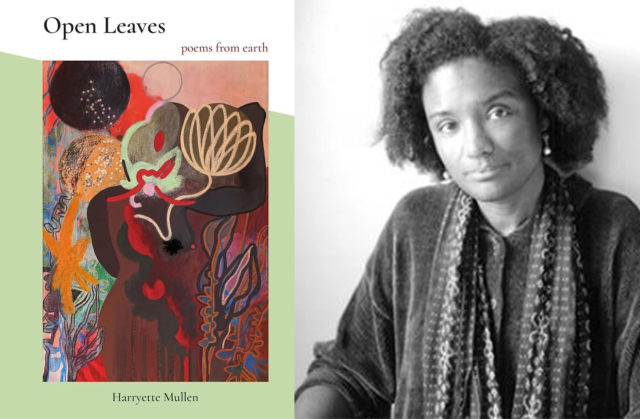

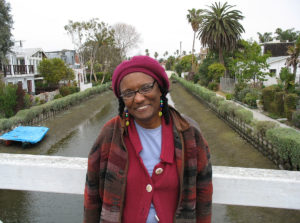
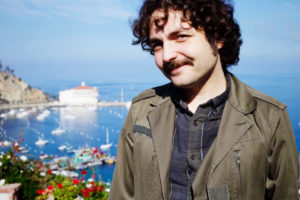
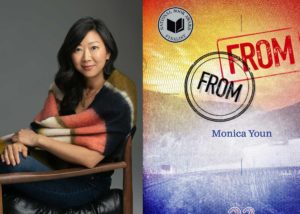
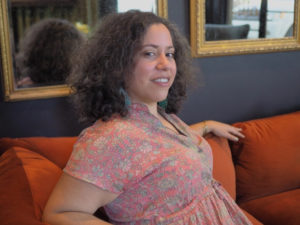
Comments are closed.